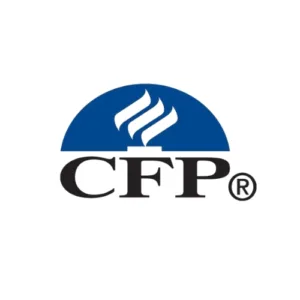Navigating the complex world of financial planning can often feel like an insurmountable challenge, can’t it?
In an increasingly complex financial landscape, aspiring professionals b are in search of clarity and guidance to navigate their personal aspirations. Amidst this turbulence, however, lies a beacon – the CERTIFIED FINANCIAL PLANNER certification, an accolade that equips professionals with the prowess to cut through the complexities, optimizing personal finance with skill and precision, crafted for excellence in the ever-evolving financial arena.
Understanding CFP Certification
The CERTIFIED FINANCIAL PLANNER certification, offered by the Financial Planning Standards Board (FPSB) USA, represents a global benchmark in financial planning excellence. In India, the CFP coursework is administered by FPSB India, which ensures that the program meets the specific needs and requirements of the Indian financial industry. The full form of CFP, which stands for Certified Financial Planner, is often mistakenly confused with other incorrect full forms such as Chartered Financial Planner or Chartered Financial Advisor. It is important to note that the correct and recognized full form for CFP is Certified Financial Planner.
Certificants are required to possess a comprehensive understanding of various financial disciplines, demonstrating their detailed knowledge and upholding the highest standards of financial planning.
Embarking on this revered journey marks a commitment to upskilling, adhering to principles of integrity, competence, and professionalism. The curriculum is scrupulously designed to cover investment planning, risk analysis, retirement strategies, and much more, shaping professionals ready to address complex financial scenarios.
Key Requirements and Eligibility
There are two tracks available for one to get CFP accreditation. Regular Pathway and Fast Track Pathway. The eligibility of both pathways differs. To make it easier to comprehend we are discussing regular pathways in this article and one can access the details about the Fast-Track Pathway from here.
To pursue the CFP certification, individuals must meet the foundational criteria of higher secondary education, with no mandate on the percentage of marks or stream of study.
The certification beckons graduates of any discipline, requiring adherence to ethical standards and a definitive period of professional experience within the financial domain.
Certified Financial Planner professionals uphold a credo of trust and expertise.
Accentuating eligibility, aspirants must complete the rigorous four-level program structure, culminating in the FPSB’s final assessment before the conferral of the coveted CFP mark.
CFP Syllabus
The CFP coursework is thoughtfully designed to provide a comprehensive educational experience that combines theoretical knowledge with practical application. As students progress through the coursework, they delve into the intricate details of financial planning, encountering a robust curriculum that equips them with the necessary skills to navigate diverse financial scenarios. With each level, the coursework delves deeper into specialized areas, requiring students to approach their studies with increased diligence and intellectual engagement.
Structure and Levels of the CFP Course
The CFP Course is tiered across four distinct levels, progressively advancing in complexity and specialization.
- Level 1: FPSB® Investment Planning Specialist (IPS)
- Level 2: FPSB® Retirement and Tax Planning Specialist (RTPS)
- Level 3: FPSB® Risk and Estate Planning Specialist (REPS)
- Level 4: FPSB® Integrated Financial Planning Course (IFP or Capstone Course)
Each level culminates in a specialist certification, contributing to the trajectory towards CFP certification.
To successfully navigate the CFP coursework, it is important to understand the structure and content of the program. Here is an overview of the coursework:
Level 1: FPSB® Investment Specialist
- Module 1: Personal Financial Management (Global Concepts, Indian Market Specifics)
- Module 2: Investment Planning (Global Concepts, Indian Market Specifics)
- Module 3: Retirement Planning and Employee Benefits (Global Concepts, Indian Market Specifics)
Level 2: FPSB® Retirement and Tax Planning Specialist
- Module 1: Tax Planning (Global Concepts, Indian Market Specifics)
- Module 2: Retirement Planning (Global Concepts, Indian Market Specifics)
Level 3: FPSB® Risk and Estate Planning Specialist
- Module 1: Risk Management and Insurance Planning (Global Concepts, Indian Market Specifics)
- Module 2: Estate Planning (Global Concepts, Indian Market Specifics)
Level 4: FPSB® Integrated Financial Planning Course
- Module 1: Advanced Financial Planning (Global Concepts, Indian Market Specifics)
- Module 2: Case Study and Financial Plan Construction (Global Concepts, Indian Market Specifics)
By completing each level and module, you will gain a comprehensive understanding of financial planning and be well-prepared for the CFP certification exam.
Study Modes and Materials
CFP aspirants may select from two study modes, one with an authorized education provider like House of Financial Planners which can include intensive classroom learning or immersive online sessions. The other mode is self-learning mode which is often the path avoided by the aspirant. Authorized Education providers can also benefit students with some limited-period coupon codes in order to benefit students on their exam fees.
Upon enrollment, FPSB provides access to comprehensive course materials, including revised textbooks and case studies. These materials serve as a solid foundation for a comprehensive understanding of financial planning, offering practical insights into complex scenarios.
It is important to note that these official course materials are sufficient to grasp the concepts, eliminating the need for any additional resources. So you can save yourself from those sales pitches.
Studying with a good mentor can enhance your exam preparation, one such Authorized Education Provider is House of Financial Planners, based in Ahmedabad, which offers a lifetime mentorship program to help students across Gujarat and India not only pass the exam but also develop into competent professionals.
They excel in both learning pedagogies, ensuring a well-rounded educational experience.
Online learning platforms offer flexibility and convenience, allowing individuals to pursue their CFP preparation regardless of their location in Gujarat or anywhere in India. This enables students to balance their professional commitments while accessing quality education from anywhere in the country.
Classroom programs leverage the traditional approach, enabling direct interaction and immediate clarification, thereby enhancing the learning trajectory for many students.
The CFP Examination Process
The CFP examination is a rigorous, multi-level assessment to ensure proficiency in financial planning. It commences with the Investment Specialist Certification at Level 1, and progresses through comprehensive evaluations at subsequent levels, culminating with the Integrated Financial Planning course at Level 4.
To embark on the examination journey, candidates must first register with the Financial Planning Standards Board (FPSB) USA and satisfactorily complete the requisite education modules. Post this foundational step, they proceed to actualize their learning by appearing for the exams, which are meticulously designed to challenge and validate their competence in various financial planning domains.
Successful completion of the CFP exams is a testament to the dedication and expertise of the candidates. It reaffirms their preparedness to hold the esteemed CFP mark, signifying their capability to deliver top tier financial advice.
Registration and Fees
Enrolling in the CFP course involves a structured payment system, catering to the varied stages of the certification process.
- Enrollment Fees: Paid to the education provider for course content, materials, and support infrastructure.
- Registration Fees: A one-time fee to the FPSB USA for an official candidate registration.
- Content Subscription Fees: Paid for FPSB’s online content, mandatory for exam preparation.
- Examination Fees: Applicable for each level, these fees are remitted directly to the FPSB USA.
- Project Assessment Fee: Required only for Level IV candidates to submit their financial planning project.
- Certification Fees: Upon successful completion of all levels, payable for official receipt of the CFP mark and certifications. The fee structure is spread across various phases, ensuring financial planning aspirants can manage expenses progressively.
To avoid any inconvenience, ensure international payments are enabled on your card, as FPSB USA mandates fees in USD ($).
Remember to factor in the annual fees required to maintain your CFP certification post attainment, keeping in stride with professional standards.
Here we are adding a table of the fees for your consumption:
Preparation Tips and Exam Format
A well-laid strategy is pivotal for CFP exam success.
Studying diligently with a structured approach is undeniably important. Creating a study schedule that accommodates a comprehensive review of course materials, supplemented with ample practice tests, can greatly enhance one’s chances of success. Furthermore, it is advisable to engage in peer discussions to gain diversified insights and strengthen understanding.
Grasp the core concepts instead of rote learning.
The CFP exams are structured to evaluate both – your theoretical knowledge and practical application. This entails a deep understanding of financial planning principles rather than mere surface-level knowledge. Thus, it is imperative to fully comprehend and internalize concepts, enabling a seamless application during the exam.
Navigate through mock exams for your confidence boost.
Your exam preparation should include numerous mock tests that simulate the actual exam environment. By regularly engaging in such practice, you familiarize yourself with the exam format and types of questions, which relieves anxiety and enhances time management skills during the real test.
Revisions are key to cementing the learned concepts.
Continuous revisions are vital in ensuring that knowledge becomes second nature. As the exam draws closer, intensify your revision schedule to reinforce your understanding and recall of critical financial planning concepts, adapting to the rapidly evolving financial landscapes anticipated post-2023. This rigorous practice helps ensure that you are readily equipped with the necessary tools and knowledge to successfully face the examination and serve diverse client needs.
Career Advancement with CFP
The CERTIFIED FINANCIAL PLANNERCM certification propels one’s career trajectory exponentially, contributing to both personal growth and professional distinction in the financial planning sphere. Distinguished by its rigorous standards and worldwide recognition, obtaining CFP certification opens doors to advanced career opportunities, placing certificates at a distinct competitive advantage. Aspirants can expect to enhance their credentials, amplify their marketability, and access an elevated platform from which to cultivate a resilient and flourishing career within the dynamic landscape of financial services.
Employment Opportunities Post-Certification
The CFP certification unveils a spectrum of career paths in the finance industry, magnifying one’s professional prospects.
- Wealth Management Advisor
- Personal Financial Planner
- Investment Analyst
- Portfolio Manager
- Financial Consultant
- Retirement Planning Specialist
- Estate Planning Expert
- Risk Management Consultant
- Tax Advisor
- Relationship Manager
- Insurance Advisor
Certificants are often preferred by top BFSI firms for their in-depth knowledge and ethical standards.
The certification also paves the way for lucrative entrepreneurial ventures in financial advisory services.
Continuing Education and Renewal Requirements
CFP certification requires ongoing education.
Certificants must fulfill a set of Continuing Education (CE) requirements to maintain the relevancy of their skills and knowledge. 30 hours of CE, including 2 hours focused on ethics, is mandatory every two years. This rigorous curriculum ensures that CFP professionals remain current in financial planning practices and uphold the highest standards of service and ethics. Failure to comply may result in certification suspension.
Every CFP professional must renew their certification biennially.
Understanding current regulations is vital – renewing the certification evidences commitment to professionalism. CFP certificants must submit a renewal application, demonstrate CE completion, and adhere to ethical requirements to maintain active status. This process is critical to preserving the integrity and value of the CFP designation.
Ethical conduct and proficient practice are non-negotiable.
To uphold public trust, CFP professionals engage in continuous learning that surpasses the mandatory CE requirements. By doing so, they assure clients of their commitment to excellence and the ongoing enhancement of their expertise. The renewal process validates this dedication, fostering confidence in the CFP credential.
CFP Certification is a globally recognized qualification that showcases expertise in financial planning.
CFP Certification is open to individuals seeking a career in financial planning, including financial advisors, mutual fund distributors, and undergraduate and postgraduate college students.
CFP Certification offers enhanced career opportunities, credibility in the financial services industry, and the ability to provide comprehensive financial advisory services.
To become a CFP certificant, you need to complete the required education, pass the CFP exams, meet the experience requirement, and adhere to the ethical standards set by the Financial Planning Standards Board (FPSB).
Yes, there are online learning platforms available that offer flexibility and convenience for studying towards CFP Certification, allowing you to balance your professional commitments alongside your preparation.
The cost of pursuing CFP Certification includes study fees paid to the education provider and board fees paid to the Financial Planning Standards Board (FPSB). The fees vary depending on the level of the program and the chosen mode of study. We have given the same in detail in the table above in the fees section
Yes, CFP Certification is recognized and respected globally, with its validity in 27 countries across the world. It is considered the gold standard certification for financial planning.
CFP Certification can open up a wide range of career opportunities in the financial services industry, including working with top financial service companies, starting your own financial planning practice, or setting up your own financial firm. It enhances your credibility and expertise in the field of personal finance.
Clients prefer to work with Certified Financial Planners (CFPs) due to their specialized knowledge and adherence to ethical standards. Working with a CFP can provide clients with confidence in their financial situation and help them achieve their life goals.
background?
Yes, CFP Certification is open to individuals from any educational background, including science, arts, and commerce. The minimum eligibility criteria include being at least 18 years old and having a high school or graduate degree.
The time required to complete CFP Certification may vary depending on individual circumstances. It typically involves completing the required education, passing the exams, and meeting the experience requirement. Generally, individuals take 12-15 months to complete all the levels.




